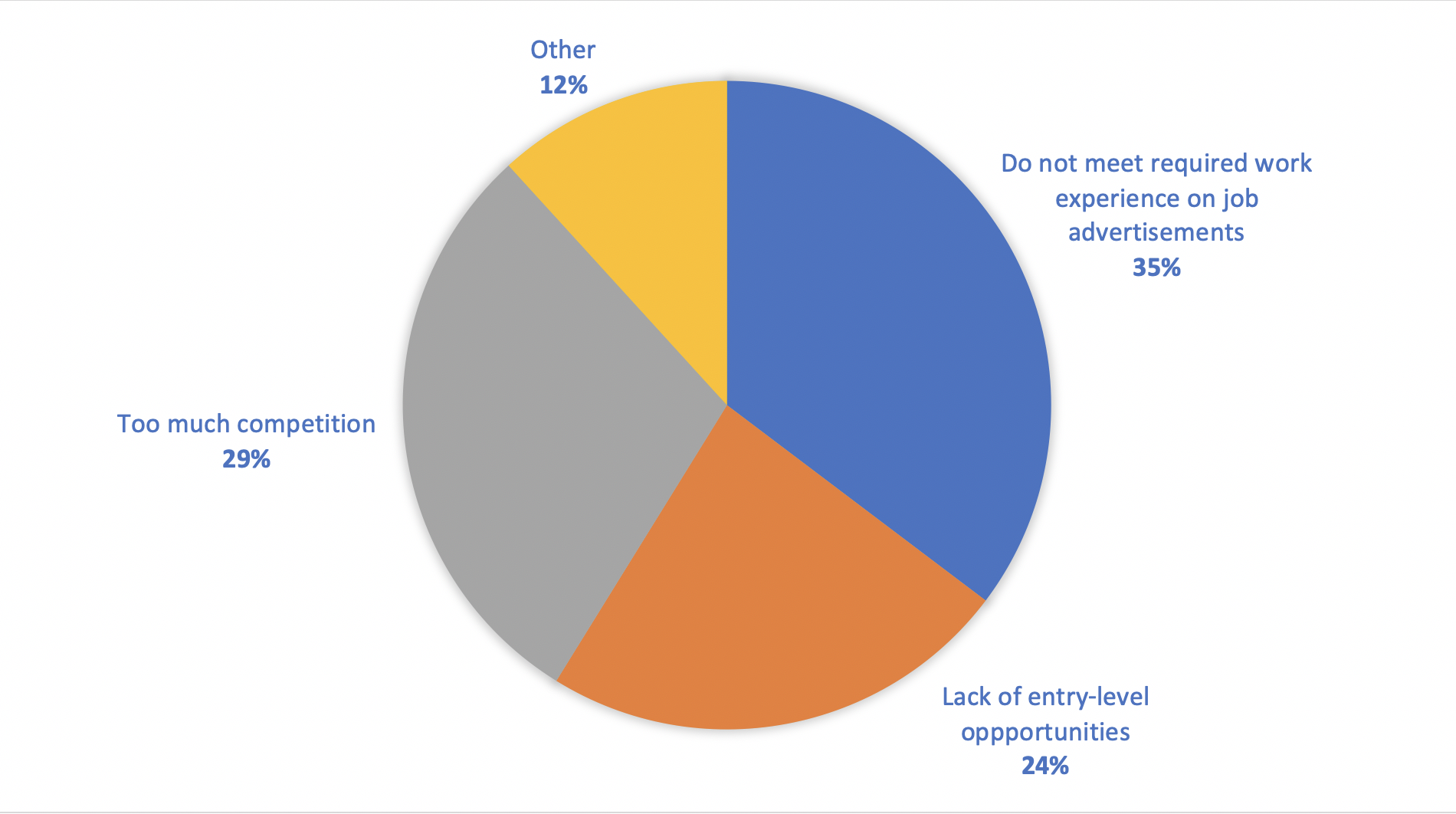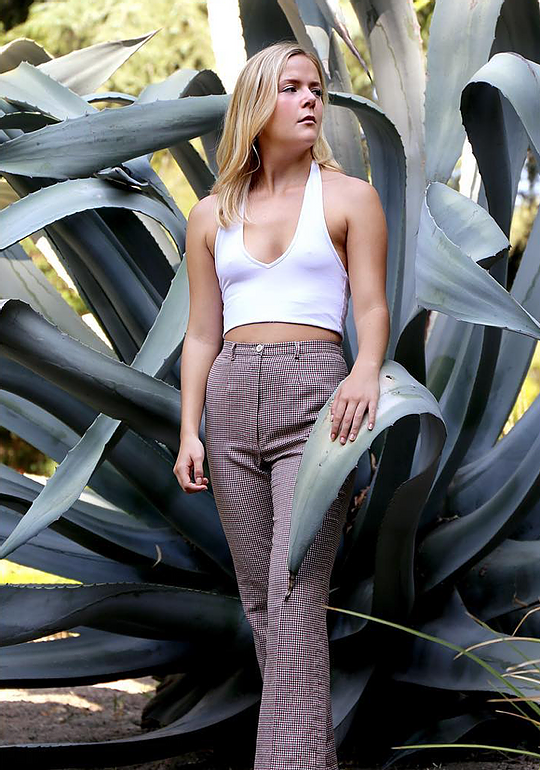
The pandemic has caused unprecedented difficulties for upcoming talent in the sphere of cultural and creative work. Here, Kelly Bryan, 2020 Photography graduate and founder of Art Link – a UK-based platform celebrating the work of young creatives – explores the challenges for her generation and offers potential solutions.
Thousands of budding, young creatives are hoping to kickstart their career in the creative industries. However, the coronavirus pandemic has directly impacted their job prospects by weakening the cultural economy. The Graduate Market in 2021 report suggests that graduate employment is overall at least 15% below pre-pandemic targets, the largest decrease since the financial crisis in 2008. This has placed the UK’s youth in a precarious state, with many individuals falling into a pool of uncertainty, desperately trying to grasp at the opportunities still available.
As a 2020 graduate of photography, I have experienced the tedious struggles of locating paid opportunities in a sea of underpaid and unachieveable job advertisements. I turned to my peers to evaluate the key issues that young adults are facing, conducting a survey and interviews between November 2020 and February 2021. Findings are based on 17 respondents, all of whom are young individuals and recent graduates.
The survey began by asking respondents: What is the main challenge you face when developing a career in the creative industries?
The results below demonstrate three areas of greatest concern:

After viewing these results, it may be surprising that jobs in the UK’s creative industries have grown at three times the UK average over the last ten years. Moreover, the sector employed over 2 million people in the UK before the pandemic, with an additional one millions jobs to be created by 2030 (Creative Industries Federation, 2020). However, the coronavirus crisis appears to have abruptly halted the once prosperous growth of the industry, with 94% of our respondents stating that the challenges they face in the industry have a direct link to the pandemic.
Luminate, a thought leadership hub on the graduate labour market, conducted a survey on the effects the pandemic was having on 1,202 final-year university students and graduates residing in the UK. 26.1% of these individuals have lost their work placement / internship; 29.2% lost their job and 28.2% had their job offer deferred or cancelled.
Expectedly, opportunity cuts for the younger generation is creating unhealthy competition in the job market, as explained by two survey respondents:
“Specifically this year, people with more experience are losing their jobs and joining the hunt for the same roles that I am aiming for. Jobs [are also] expecting years of experience for an entry-level role.”
“[I don’t have] enough experience to get a junior role or internship! [There are] so many other people applying for the same role; jobs I’ve applied to have had 600+ applicants!”
Our own findings are mirrored by those from Adventures in Career Development, which state that during 2019 and 2020, employers were recruiting 12% fewer graduates, 29% fewer interns and 25% fewer placement students compared to before the pandemic. Consequently, unemployment in those aged 16-24 has drastically increased from 124,000 to 597,000 (The Guardian, 2021).
Insufficient paid opportunities in the creative industries have left young talent resorting to unpaid work to occupy time and build skills, with 53% of our survey engaging in voluntary work. As suggested by one respondent, unpaid work in the creative industries is unfortunately expected, even before the pandemic. However, coronavirus has intensified this exploitation:
“It’s been made clear since the first day of university, that a lot of unpaid opportunities will come our way and to be careful when traversing them. On the one hand, arts organisations are experiencing hardship… [so] it’s no wonder that creative businesses are struggling to pay practitioners. On the other hand, it just feels like another chapter in the government and business’ exploitation of the labour of desperate graduates.”
The psychological impact unpaid work is having on young people is evident, as suggested by another respondent:
“It’s great that I’m getting to develop my skills to better prepare me for my career, but working all day to fulfil unpaid briefs is becoming soul-destroying. How much is exposure really worth?”
Although opportunities appear few and far between, young creatives continue to make an active effort to network in a digital space. Of those surveyed, 94% have attend virtual equivalents to physical networking. However, only 25% of these individuals felt the equivalents were useful at developing their skills, connections and/or careers:
“It’s hard to get your personality across and I think that is so important with creative relationships”
“I dread the awkwardness of calls and the formality of the whole thing. When it’s virtual, it doesn’t always feel real.”
Although digital networking progresses towards universal accessibility in the creative industries, many felt it remained impersonal and disconnected:
[Digital equivalents are] much more accessible for all in terms of them being cost-free and no travel is needed. However, I don't think everyone on a virtual call interacts [and] work cannot be viewed in the same way in a virtual form, it loses its quality.”
“[They are] an okay alternative, but stuttering Wi-Fi and awkwardly muted mics mean that zoom calls don't flow as naturally as real-life conversations.”
The adversity young creatives have faced during these unprecedented times cannot be overlooked, however, it is as important to acknowledge their resilience also. Of those surveyed, 89% felt they had successfully adjusted to a new way of working and living. Therefore, it is unsurprising to see student- and graduate-led platforms popping up all over the digital world, whereby the youth of today are creating their own opportunities to replenish the current absence in the art industry. These spaces welcome young individuals to connect, network and share the ambiguity of becoming an established creative in 2021.
Despite their achievements and career-focused attitudes, apprehension and anxiety feeds into their thoughts about the future and the lasting impacts coronavirus may have:
“It’s going to be a very scary time for many industries, especially the creative kind. Ironically, I think the pandemic has drawn a lot of the public closer to the arts: film, photography and music, but that doesn’t count for much if there is no funding available.”
“Zoom meetings and digital submissions etc have definitely changed the way we interact with the art world, but I hope that it hasn’t permanently changed. We artists often thrive off of physicality and tangible relationships; the current digital climate just perpetuates my imposter syndrome even more.”
“Since everything is being transferred to online this may have a great impact on some areas, for example graphic designers may flourish and be higher in demand, whereas theatre still looks very bleak as large gatherings seem to be a long way off.”
What more can be done to help?
An understandable concern for their future has led to encouraging developments with pre-existing art platforms. Organisations are making a considerable effort to create valuable opportunities, such as Redeye’s Graduate Mentoring Scheme. Although these developments are progressive, more can still be done.
How can those working in the creative industries further support young creatives during the pandemic?
- Engage with the new platforms young talent have created.
- Support young adults with entry-level opportunities and job requirements that match the job title.
- Purchase artwork from new and small businesses.
- Celebrate the adaptability, courage and resilience young creatives have shown and continue to demonstrate.
- Keep the youth sector connected through valuable networking events, mentoring schemes and residencies that are universally accessible.
Student and graduate-led platforms to have a look at:
The Social Distance Art Project
Written by Kelly Bryan
